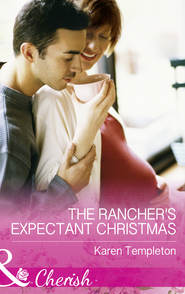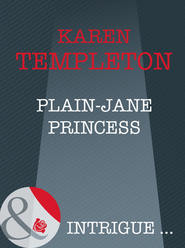По всем вопросам обращайтесь на: info@litportal.ru
(©) 2003-2025.
✖
The Marriage Campaign
Автор
Год написания книги
2019
Настройки чтения
Размер шрифта
Высота строк
Поля
“Hey—!”
“And the pair of you,” April put in, shivering inside her jacket as she put her phone to her ear, “can hush up right now. There’s a Howard Johnson’s just across the street. And that big supermarket over there.” Both of which were barely visible through the wall of snow. “So if we’re stranded, at least they won’t find us dead of starvation in the car.”
Always the optimist, that April. “What about your guests?” Blythe asked.
“In February? Not to worry, we don’t have any bookings for the next two weeks—” She held up one finger as whoever she’d called answered. “Hey, sugar,” she said, in all likelihood to her fiancé Patrick. “It’s snowing real bad here, it looks like we’re stuck ….”
This in stereo with Mel’s having virtually the same conversation on Blythe’s other side with her honey. Blythe, of course, had no one to call, no one to worry about her. Or disappoint that she wouldn’t make it home tonight. No one who’d even know or care that she was marooned in some lame strip mall in a town so tiny it didn’t even show up on MapQuest unless you hit the magnify dealiebobber five times. Most of the time, she found it liberating, even exhilarating, not having to answer to anybody about her comings and goings. Tonight, though …
Probably something to do with the drop in the barometric pressure.
“Okay, I’m gonna go snag a couple of rooms,” April said, all sparkly-eyed and whatnot. God bless her. “So why don’t y’all go get some food? I’ll make sure there’s a fridge in one of the rooms …”
And off she went, trudging through the storm like the intrepid little pioneer woman she was clearly channeling. Nobody could accuse any of them of being wimps, that was for sure, Blythe thought as she scurried to catch up to Mel and Quinn, laughing like a pair of goons as they slipped and slid across the parking lot.
“Ohmigosh,” Quinn yelped as they got closer to the store, swarmed with people clearly convinced this was Armageddon. “Look … it’s Jack and his dad!”
Jack, being Quinn’s good buddy Jack Phillips, who lived a few houses down from the inn, and Jack’s dad being Blythe’s worst nightmare.
Or fantasy, depending on where her dreams decided to take her on any given night.
As if she needed this day, or her headache, to get any worse.
Oh, yes, Blythe was well acquainted with Wes Phillips, he of the dimpled, dashing politician’s grin that had, in all likelihood, gone a long way toward garnering the freshman congressman sixty-two percent of his district’s vote in the last election—despite Wes’s being that oddest of odd ducks, an independent candidate. Along with, Blythe had to reluctantly admit, policies that made him as easy on the nerves as he was on the eyes. Because the dimples came as part of a package that included honest, direct hazel eyes—complete with sexy crinkles, natch—and a jawline that would make Michelangelo weep. Also, he was tall. As in, tall enough that she could be standing in front of him in four-inch-heels—like, say, now—and those damn bedroom eyes were still level with hers.
But.
Since this was one of those never-gonna-happen things, for many, many reasons, Wes Phillips could darn well keep his eyes and his jaw and his dimples to himself, thank you, and Blythe would content herself with the occasional, random, toe-curling dream, and all would be well.
“Ladies! What on earth are you all doing out in this nasty weather?”
“Um … bridal gown shopping,” Mel said in a might-as-well-come-right-out-with-it voice. Sure enough, Wes’s smile faltered. Not a lot, but enough if you knew what you were looking at. In this case, what Mel’s upcoming wedding probably meant to a man who’d lost his wife in the same car crash two years before that had also killed Ryder’s fiancée Deanna. While Mel’s return to St. Mary’s had obviously been instrumental in binding Ryder’s wounds, Wes was clearly still grieving.
Reason Number One why Blythe had to ignore the dimples.
And Reason Number Two would be his son, who, even while talking to Quinn, shot a hurt-littered glance at her mother. As often as Blythe had hauled Quinn and Jack around over the past few months, she’d had plenty of opportunities to observe, and listen to, eleven-year-old Jack. Caught in that horrible limbo between childhood and adolescence, the boy bore all the earmarks of a good kid ready to erupt—earmarks Blythe knew all too well. Earmarks she wished she knew how to alert his father to without sounding like a buttinski. Or, worse, like she was looking for a way to make herself, you know. Available.
Because—and this would be Reason Number Three, aka the Biggee—making herself available had only ever led to heartbreak and confusion and wondering why she’d even bothered.
However, the good news was that she’d finally caught on, that she was a much saner, nicer person alone than when she was in a relationship. So, hallelujah, she’d never have to fight for the bedcovers again—
“And what brings you out?” Mel said to Wes, and the smile ratcheted up again.
“The usual,” he said, hunkering down farther into his olive-green down parka. “Meeting with constituents, getting an earful. Trying to reassure while not making promises I know I can’t keep.”
Oh, and there was the issue of Wes being a politician. Almost immaterial on top of everything else, but definitely a contributing factor to Blythe’s ignoring how he was looking at her right now. Because she knew all too well what life was like for politicians, having worked with plenty of clients in the trenches. Or close to those who were. Their work was their life, the hours often horrendously long when they were in Washington, their time at “home” still eaten up with travel and meetings and glad-handing the people who’d voted them into office. That is, if one was the conscientious sort, which, from everything she could tell, Wes was. For that, she had to give the man props—
Mel looked around. “No entourage?”
Wes chuckled. “Not today. Sometimes I just get in the car and drive, stopping where the mood strikes, see if anyone’s up for chatting.” Dimples flashed. “Someone usually is.” His expression softening, he smiled for his son. “Gives Jack and me a chance to hang out. Catch up.”
But it was that very conscientiousness that caused, she had no doubt, the look she’d seen all too often in his son’s eyes—the son still smarting over his mother’s loss. It sometimes made her want to smack Wes Phillips upside the head.
True, it was none of her business. Nor was the kid neglected—Wes’s parents lived with Wes and Jack, and seemed to be the most doting grandparents ever. But still. It was obvious how much the kid needed, wanted, his dad. And how much he resented having to share him with the entire Eastern Shore. And, having endured similar crap-page from her own parents while growing up, Blythe’s heart broke for the boy.
Meaning there was no way she’d ever let his father anywhere near it.
Dimples be damned.
Happened every damn time he saw her, that kick to the gut that made Wes wonder if he was losing it. Because it was insane, the way Blythe Broussard got his juices flowing. Insane, and inexplicable, and highly inconvenient, what with his barely having time to figure out the why behind the insane, inexplicable attraction, let alone pursue it. Even if he wanted to, which he didn’t. He didn’t think.
But there she stood, holding his gaze hostage even from several feet away. Man, she looked at him like she wanted to do a feng shui number on his brain, her eyes huge, somehow accusing, a weird shade of deep blue in a pale, sharp-boned face. Her hair was almost as short as his and nearly a white-blond, her mouth a dark red few women could pull off and not look macabre.
She wasn’t even pretty, not in a conventional sense. And so unlike Kym, who had been. Still. Juices. Flowing.
Like the flippin’ Potomac.
He deliberately turned to Mel, as short and curvy as Blythe was tall and … not. “So are you headed back to St. Mary’s?”
The brunette snorted. “In this?” She gestured toward the snow, now coming down as if intent on beating all previous records. “No way.”
Wes liked Mel, was more grateful than he could say that her daughter, Quinn, and Jack had become close friends. Losing his mom and then, ipso facto, Wes as well, had been rough on the kid. And he was glad, he really was, that Ryder had been able to move on after Deanna’s death. But then, he hadn’t known her—loved her—for twenty years, as Wes had Kym.
“We decided to camp out at HoJo for the night,” Mel said. “And you?”
“Now that you mention it … I’m not wild about driving in this, either. Hey, Jack!” He called over to the two kids, standing in the parking lot, trying to catch snowflakes on their tongues. “You okay with hanging out here tonight?”
The kid turned. “At the Food Lion?”
“No, goof—at the hotel over there.” Then his eyes grazed Blythe’s, and the punch to his chest knocked his breath sideways. Not that he’d doubted the attraction was largely sexual, but after all those months of feeling like he’d mainlined Lidocaine … holy hell.
Must be the weather. Or the buzz left over from the afternoon’s schmoozings, reminding him of the reason he tossed his hat in the ring to begin with. That he’d left it there even after …
Wes jerked his gaze, and his thoughts, back to Mel. “If there’s a room …?”
“I’ll see if April can book a third room,” she said, pulling out her phone as Blythe walked away, dodging a family coming out of the store, their three kids jumping around like snowsuited fleas. And he saw her smile, watching them, before their eyes met again and she flicked the smile off like a switch and turned away. Right. Because maybe all that gut-kicking and chest-punching had less to do with sex than it did aversion. On her part, that is.
Hey, it happened. He was a politician, after all, even if the term still didn’t feel right, like a pair of new shoes he couldn’t seem to break in. Plenty of people disliked him, simply because their vision didn’t mesh with his. Just came with the territory. And God knew nothing to get his boxers in a bunch over, even if his time in office—not to mention his campaign manager and half his staff—would try to convince him he was too nice for his own good.
Well, tough, he thought, as Mel gave him a thumbs-up—about the room, he presumed, before ducking into the store with the kids—because while sacrifice also came with the territory, he wasn’t about to slap his integrity on the altar. For anyone. Or anything. He’d thrown his hat in the ring for his own reasons, reasons many might consider idealistic, even naive. But at the end of the day none of it meant diddly if he lost his self-respect. Not to mention his son’s.
“You’re not going in with them?” he called to Blythe.
She glanced over, then shrugged. “Nah, I’m good with whatever Mel gets.”
Wes nodded, feeling oddly out of his depth. Closing arguments, no problem. Ditto giving speeches, or discussing issues with constituents. Although he wasn’t an attention seeker for its own sake, neither was he an introvert. Words, ideas, usually came easily to him, and one of his “gifts” was his ability to work a crowd. And yet, he hadn’t felt this tongue-tied around a woman since those agonizing months in the ninth grade working up to asking Kym out.
Not that this was anything like that, of course.











